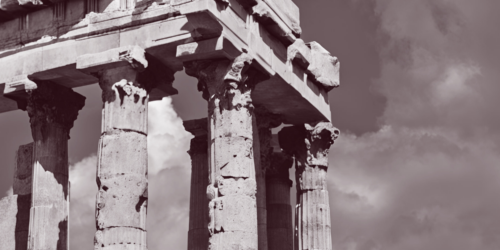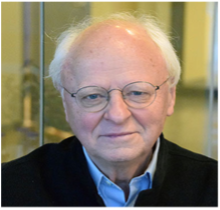Commentary
The unyielding headwinds buffeting this “super election year”
In a new essay, Börje Ljunggren points to the current retreat of global democracy as the great risk of our time.

The year 2024 began with numerous articles in the international press about what was called a “super election year.” Elections were scheduled in over 70 countries, involving four billion people—half of humanity. Something truly historic was on the horizon.
At the same time, there were subdued warnings that democracy was at risk in many of these countries, and globally. A grim fact is that democracy has been constantly retreating worldwide for many years, a process we might call “de-democratization.” Moreover, there is little to suggest that 2024 will mark a turnaround, despite the exceptionally large number of elections. The year may instead end with the United States electing a president who has already tried to steal an election.
So far this year, elections in populous nations such as Bangladesh, Pakistan, Indonesia, and Russia have all shown a decrease in democratic integrity. Democracy has weakened in Bangladesh and Indonesia, the election in Pakistan confirmed how far the country is from a functioning democracy, and the Russian election was a classic sham. However, the year began with a successful election in Taiwan, and Mexico will hold an election marked by invigorating competition in June. The upcoming EU election is expected to further strengthen nationalist forces.
The ongoing election in India, “the world’s largest democracy” with nearly a billion eligible voters, is likely to confirm this worrying trend. By all accounts, it is set to be a clear victory for Narendra Modi and his Hindu nationalist party, the BJP. Modi’s unmistakably skillful “project” is to dismantle secular India, a stark contrast to the India that won its independence in 1947 under leaders like Mahatma Gandhi, who was assassinated shortly after independence by a Hindu nationalist, and Jawaharlal Nehru, the prime minister until his death in 1964.
Today, identity is the focus. India’s entire political culture is shifting toward what many political scientists call “ethnic democracy,” “majority democracy,” and “competitive authoritarianism.” Modi’s India is a hybrid: the formal architecture of democracy is maintained, but its institutions are weakened, reflecting broader global trends of democratic backsliding.
The world experienced what Samuel Huntington called “the third wave of democratization” (Huntington, 1991) beginning in the mid-1970s with the democratization of Greece, Portugal, and Spain. Although a number of democracies stabilized after a surge in the early 1990s following the Soviet Union’s collapse, signs of a regression have become more common, establishing a new norm nearly 20 years ago.
This troubling trend is confirmed by highly regarded assessments. According to Freedom House, the world has seen an uninterrupted decline in democracy over the past 18 years, with no apparent end in sight (Freedom House, 2024). In 2023, political rights and civil liberties deteriorated in 52 countries and improved in only 21, a decline consistent across all continents. Similarly bleak conclusions come from Stockholm-based IDEA’s Global State of Democracy 2023 report and the Varieties of Democracy (V-Dem) project, with the latter reporting that “the level of democracy experienced by the average citizen in the world in 2023 is down to the level of 1985.” These assessments underscore the complex and often unpredictable nature of political development since the end of the Cold War.
Of crucial importance in the drama that the world is facing is the fact that 1991 was by no means, as Francis Fukuyama predicted, “the end of history.” After the fall of the Soviet Union, Fukuyama argued that only one path remained: liberal democracy based on a market economy, two sides of the same winning coin. However, history chose a different course. The Soviet Union did dissolve, but failed reforms and corruption during Yeltsin’s years paved the way for Putin and Russian revanchism. We are left to wonder if outcomes might have differed had the West provided extensive economic support to Russia after the Soviet Union’s collapse, during the critical years of the 1990s when many Russians suffered economic hardship. There is, of course, no answer to such a counterfactual question. We only know that the “peace dividend” that emerged from the Soviet Union’s dissolution was quickly lost. Putin’s KGB-style Russia then took shape.
China’s rise was still in its infancy when President Clinton announced its entry into the World Trade Organization (WTO) in the fall of 2000, asserting that it would inevitably lead to growing economic and political freedom in China. He famously claimed that preventing this would be as futile as “trying to nail Jello to the wall.” Globalization was seen as Washington’s project, expected to strengthen the US as a hegemon and ensure global convergence. At that time, China was already “inside the tent.”
No one could have imagined that within a few decades, China would become the world’s second-largest economy, the largest in terms of purchasing power, and the world’s largest trading partner for over 140 countries, all while the Leninist party state deepened. Ironically, an authoritarian China became the big winner in the era of hyperglobalization, achieving a an unprecedented technological leap. Today, China faces significant challenges; however, assuming that the country already has “peaked” is a risky bet.
When President Obama assumed the presidency in 2009, global convergence was the prevailing idea. However, by his last year in office, as China became increasingly powerful and authoritarian, he clearly feared that the notion of global convergence was a relic of the past. Divergence became the new reality, and geoeconomics transformed into geopolitics. Following the financial crisis of 2008, a more confident China emerged. Today’s China no longer describes itself as a “dictatorship of the proletariat with Chinese characteristics” but rather as a truer democracy than the capitalist West. In reality, however, it is a “control state” with AI at its service. The Chinese People’s Liberation Army, according to the country’s constitution, is tasked not just with defending the country but first and foremost with preserving the Communist Party’s hold on power.
Strategic mistrust will inevitably characterize relations between the United States and China, the core poles of geopolitics, with mutual interests hopefully providing stabilizing “guardrails” to avert the danger of “unintended conflict.” Growing competition for influence in “the global south” seems inevitable. The position of the Western world is challenged, and polarization deepens further due to Russia’s full-scale invasion of Ukraine and the escalating Israel/Palestine conflict.
Furthermore, crucial multilateral institutions of the postwar period are weakening. The WTO is marginalized due to growing protectionism, particularly in advanced semiconductor technology. One of last year’s most talked-about books, The Chip War, discusses this issue. Geopolitical tensions weaken the prospects for “global governance,” while global challenges are greater than ever. In 2015, the ability of Obama and Xi Jinping to cooperate played a crucial role in the birth of the Paris Agreement on climate. Since then, the climate question has also been strained by growing tensions, although cooperation in this existential sphere has not been undermined. During the Cold War, the Cuban Missile Crisis of 1962 led to a state of mutual reflection. Hopefully, the existential nature of the climate crisis will foster a continued willingness to cooperate, as there is no alternative to coexistence.
The conditions for the development of democracy could obviously have been much more favorable. The defense of democracy becomes more important than ever, but not through devastating invasions like the US invasion of Iraq in 2003, based on false premises, which contributed to the rise of the Islamic State.
After World War II, there was hope that Europe had finally learned its lesson and would invest in a liberal welfare-based democracy, a democratic state willing and able to assert its power over the market and build a society based on fundamental social and economic justice. However, the lesson was replaced by a belief in the magic of the market. Neoliberalism never delivered what it promised but created a climate favorable for populism.
Against this background, as Sverker Gustavsson, the doyen of Swedish research on democracy, states in his recent collection of essays, democracy’s self-defense becomes more important than ever (Gustavsson , 2024). The adversary is now not only dictatorship but also populism, nurtured by social media, cyberattacks, AI-generated disinformation, and symptomatic oligarchs.
The sustained revitalization of democracy is clearly the great task of our time.
Börje Ljunggren is a former Swedish ambassador to China and is an associate of the Harvard University Asia Center.
